I was fortunate enough to live in Kyoto, Japan for 6 years.
While there, I took full advantage of Kyoto’s cultural treasures by studying tea ceremony, kimono wearing, flower arrangement, massage, koto, and Aikido.
I incessantly explored Kyoto’s arts, alleyways, shops, festivals, temples, hidden traditional eating establishments and theatrical performances.
Today I’m here to share with you some insider’s tips on simply amazing FREE things to do in Kyoto. In fact, I came up with so many tips that I’m presenting Kyoto in two parts. This is pt. 2.
If you missed pt. 1, it’s HERE. Happy explorations!
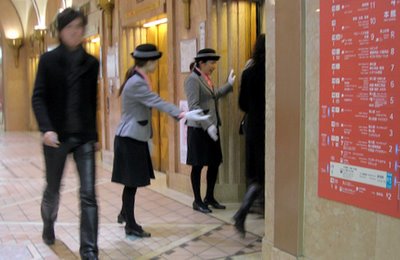 elevator girls assisting customers at a department store |
|
1. Experience a Japanese Department Store opening. Seriously
Takashimaya, Daimaru, Isetan and Hankyu Department Stores in central Kyoto
Get yourself to a department store one morning just before opening hours. At precisely 10 am, a troupe of identical, perfectly coiffed, uniformed and gloved, doll-like store clerks will carefully pull open the large glass doors in unison, bow to the patiently waiting customers, and chirp, “Irashiamase” (“Welcome”).
Proceed inside, feeling like a prince or princess, and head to the escalators where another duo of immaculately uniformed and gloved beauties bows as you step on and ascend. At the top, guess what? Another duo of delicate clerks bow serenely, chirping, “Irashiamase”.
To return downstairs, find the elevators. Lovely elevator attendants push floor buttons for customers, hold doors open, and bow politely as the doors close. Inside, of course, there’s an elevator floor button clerk who will chose floor buttons for everyone on board, call out each floor, and bow to each customer who gets in or out.
Japanese manners are simply beyond civilized!
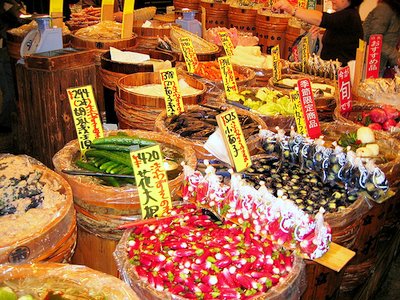 Japanese pickles on display at Nishiki Market, Kyoto |
|
2. Gape at unusual fresh foods
Nishiki Market
While you’re in central Kyoto, you might as well wander over to Nishiki Market, a covered pedestrian road that parallels Shijo Dori (4th Street) just one block north.
Nisihiki runs for 5 blocks, displaying Japan’s lesser known cuisine ingredients, including an amazing variety of pickled vegetables, dried seaweed and sea products, unusual crackers and sweets. Have fun trying to figure out what they are and even tasting free samples.
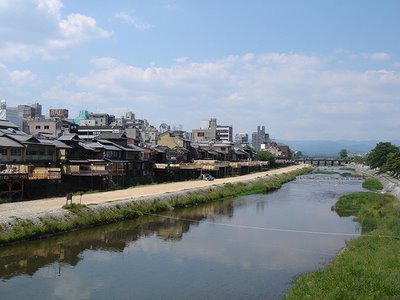 Kamo River runs through central Kyoto |
|
3. Get some exercise along pretty Kamo River
Kamo River flows down from mountains just north of Kyoto and runs right through the heart of Kyoto’s shopping, restaurant and nightlife districts, then out the southern end of the city.
Start at Shijo Dori (4th Street) Bridge and walk, jog or cycle-tour north, along Kamogawa’s eastern shores. You can walk all the way to the mountains, if you like, some 10 km/6 miles.
The further north you go, the wilder the river and the more natural the river banks. Eventually, you’ll be walking through parks, which line both sides of the river.
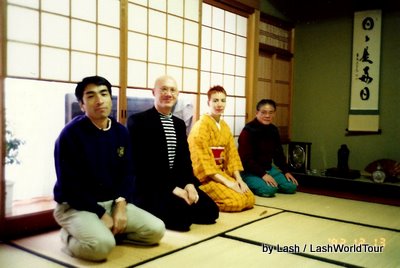 impromptu tea ceremony at a friend’s house |
|
4. Visit a Kyoto family for an afternoon
Kyoto International Community House
Kyoto International Community House, near Heian Shrine, organizes visits to Kyoto families for tourists passing through Kyoto. It’s an excellent chance to meet everyday Japanese people, see their homes, ask about their lives, and make a warm cultural exchange.
Arrange a visit at least one day in advance by visiting the International House. (instructions and directions on their website) Don’t worry- you don’t have to wear a kimono like I did! Just go as yourself.
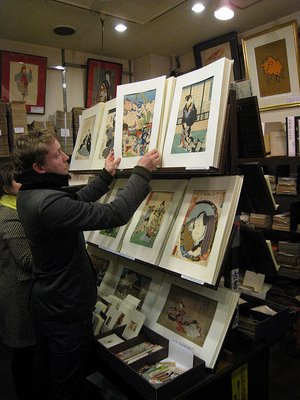 checking out ukiyo-e, woodblock prints |
|
5. Discover how Japan’s woodblock prints, lacquer-ware, filigree silver, and calligraphy are made
When you visit Kyoto International House to arrange your family visit, stop at nearby Kyoto Handicraft Center. There you’ll find every imaginable Japanese art and handicraft showcased on 5 floors devoted entirely to Japanese traditional arts, handicrafts and modern souvenirs.
On the 2nd floor there’s a large workshop where artists make woodblock prints and other arts.
6. See ‘the real thing’: Bonsai
Everyone knows Bonsai originated in Japan. Kyoto offers your best chance on the planet to see the cream of the crop, particularly at Kyoto’s 2000+ temples, which display gorgeous, centuries-old bonsai on their grounds.
Another great place to admire bonsai is at Department Store roofs, which have gardening centers full of Bonsai.
Finally, several landscaping centers proffer lovingly-tended Bonsai along the back roads bordering the southern edge of Sagano, near Arashiyama in western Kyoto.
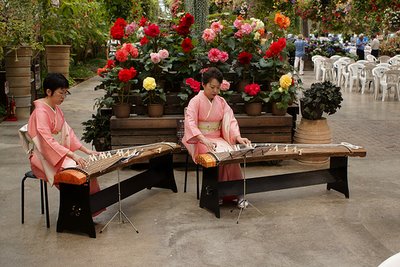 Japanese women playing koto – Japanese 13 string floor harp |
|
7. Listen to traditional Japanese music
A great place to get a sweet ear full of traditional Japanese music is in the lobbies of Kyoto’s 5-star hotels. Delicate kimono-clad ladies sit, strumming the koto- 13 string floor harp- or plucking the shamisen- Japanese banjo. If you attend a Kyoto festival, you’ll also be treated to traditional music.
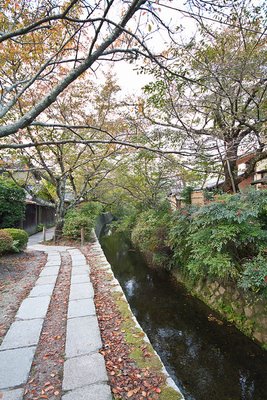 Philosopher’s Path in Eastern Kyoto |
|
8. Wander along a historic canal: ‘Philosopher’s Walk’
At the foot of Kyoto’s eastern mountains, a charming gurgling stream runs through an old stone canal under a cool canopy of cherry trees.
The canal passes lovely traditional neighborhoods, shops and temples between famed Ginkakuji Temple, at it’s northern end, and equally famed Nanzen-ji Temple at the southern end.
Sweet cinnamon fragrance hovers in the air around a traditional sweets shop, mid route. Muskier incenses waft out of tea shops and small temples tucked in little alleys. Giggling school girls and chattering housewives amble along the stone walkway. Gentle winds rustle leaves overhead.
If you’re lucky enough to visit Kyoto in early May, don’t miss the gorgeous cherry trees in full bloom.
One thing most guidebooks fail to point out is that from Nanzenji’s huge, sprawling complex you can easily greatly extend your charmed walk over to large Chion-in Temple, Maruyama Park and Yasaka Shrine. From there you can continue even further, all the way down to Kiyomizu Dera Temple via Kyoto’s interesting old neighborhoods. Just follow the free map you picked up at Kyoto Visitor’s Center.
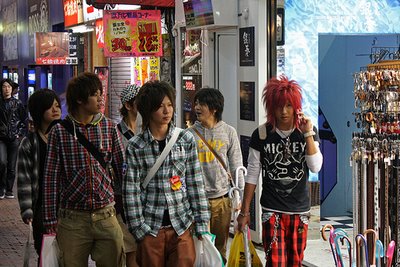 plaid is hot with this crew in Kyoto |
|
9. Catch up on the latest Japanese fashion trends
Japanese youth fashion is a unique, quirky world of its own. Mainstream Japanese fashions don’t take their cue from Paris, Milan or NYC. Instead, Japanese constantly create their own definition of cool style. Pick up a Japanese fashion magazine for a head’s up on current trends.
Besides mainstream fashion, there are also many ‘minority trends’ in full throttle: punks, goths, heavy metal followers, 50’s swing, rastas, rappers, and more.
Head over to Shinmachi and Muromachi Streets (parallel to Karasuma Street between Shijo and Oike) after public schools let out. 3 pm-6 pm weekdays and all day on weekends the area is chocked full of teens and pre-teens sporting their latest ensembles, flirting, giggling, and laughing raucously while they meander along the streets. Fascinating!
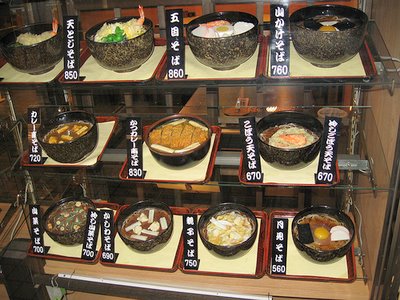 Japanese food on display in outside window |
|
10. Try to decipher Japanese plastic food displays
Most Japanese restaurants showcase huge displays of their meals in their front windows, so customers can preview exactly what’s available. The plastic molded copies are astonishingly realistic.
However, the foods themselves are often new to westerners. What’s more, signs are written in Japanese. Trying to figure out what the heck things are can be quite a guessing game and fun way to spend a few hours.
Just wander around central Kyoto or Department Stores’ restaurant floors.

100 Free Things to do in Asia eBook
If you found this post useful, you’ll love my FREE eBook:
100 Free Things to do in Asia. It describes 10 free things to do in 10 different Asian cities and destinations.
Check out my eBook here
————————————————————————————————————————————————


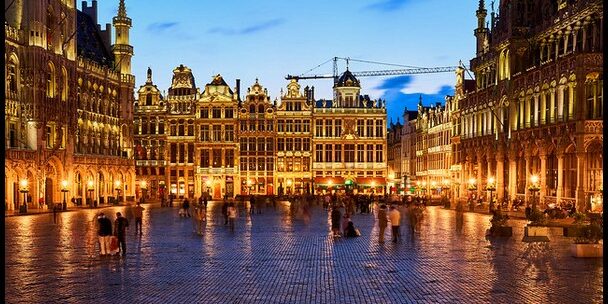
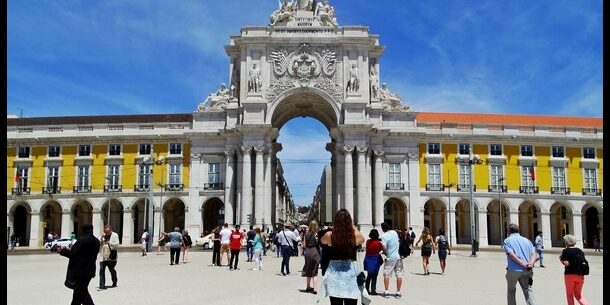



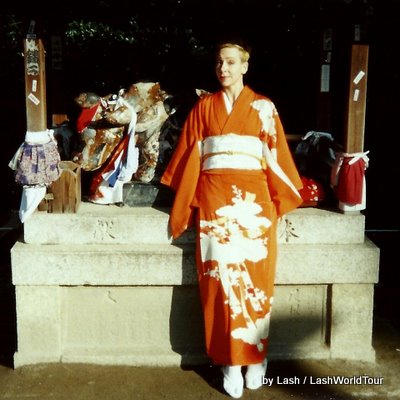









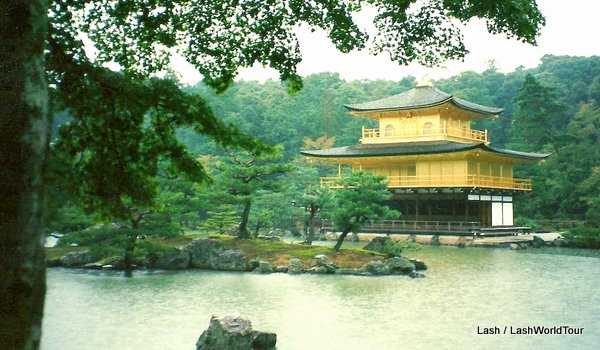
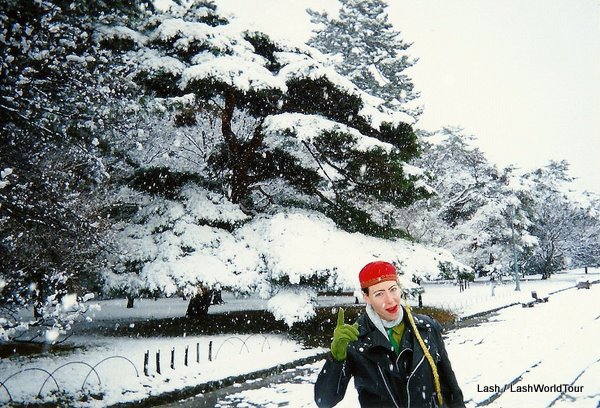
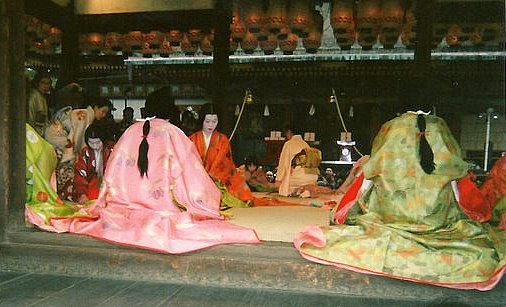
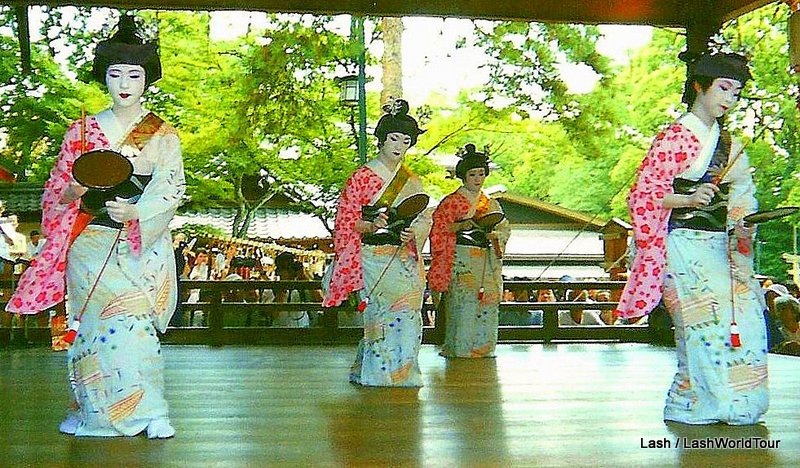

 Hi! I'm Lash, an American nomadic world traveler who's been traveling solo since 1998. I’m passionate about traveling the world nomadically and then sharing it all with you. I hope to inspire you to travel the world, to entertain you with tales from the road, and to help you reach your travel dreams. Welcome!
Hi! I'm Lash, an American nomadic world traveler who's been traveling solo since 1998. I’m passionate about traveling the world nomadically and then sharing it all with you. I hope to inspire you to travel the world, to entertain you with tales from the road, and to help you reach your travel dreams. Welcome! 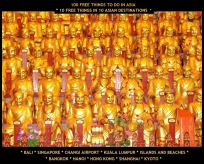




5 pings
Where to go in Japan » LashWorldTour
2013/08/23 at 1:38 pm (UTC 8) Link to this comment
[…] As if all that’s not enough, many of Kyoto’s best activities and attractions are free. That’s a handy way to cut down on your expenses. Check out my two posts on Free Things to do in Kyoto: part 1 here / part 2 here […]